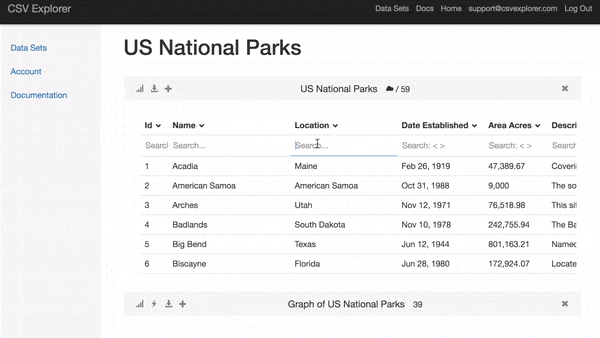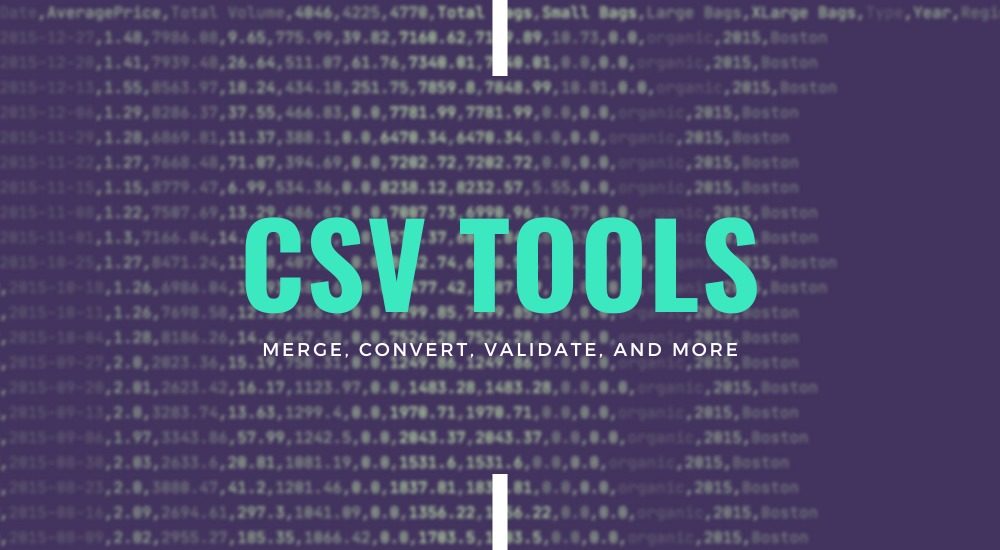CSV tools (Merge, Convert, Validate, and more)
CSV (Comma Separated Value) files are prevalent when working with data extracts. You can even open and edit a CSV file with a text editor, but it gets complicated when you are working with files containing thousands of data rows.
Below is a list of the best tools for all your CSV-related needs.
Merge CSV files on your PC
This is useful when the CSV files you want to merge contain sensitive data that shouldn’t be uploaded online.
You can use the “copy” command available in Windows or the “cat” command available in Unix, by following the steps below:
- Collect all CSV files in the same folder
- Navigate in the command line to the directory containing all the CSV files
- For windows use:
copy *.csv merged.csv
For Unix use:
Cat *.csv > merged.csv - A new file named “merged.csv” is created containing the data of all the CSV files in that folder.
- If the merged CSV files contained headers, do not forget to remove the headers from the final merged.csv file.
Merged CSV files online
If you prefer the ease of merging files online and the size of CSVs is not a limiting factor try mergecsv.com.
CSV ↔️ JSON conversion
The conversion tools available here are the most flexible tools I’ve used when trying to convert JSON files to CSV (especially when the JSON file contains a complicated structure). It offers the option to complete the following conversions:
Validate CSV
CSV looks easy, but it can be hard to make a CSV file that other people can read easily.
CSVLint helps you to check that your CSV file is readable. And you can use it to check whether it contains the columns and types of values that it should.
Just enter the location of the file you want to check or upload it. If you have a schema that describes the contents of the CSV file, you can also give its URL or upload it.
CSVLint currently only supports validation of delimiter-separated values (dsv) files.
Explore CSV
Explore Spreadsheets with Millions of Rows. CSV Explorer offers a simple way to search, filter, plot, and manipulate data even when you have a million rows at your disposal. This is a paid tool, but the free plan supports up to 5 million rows, which might be enough for most cases:



